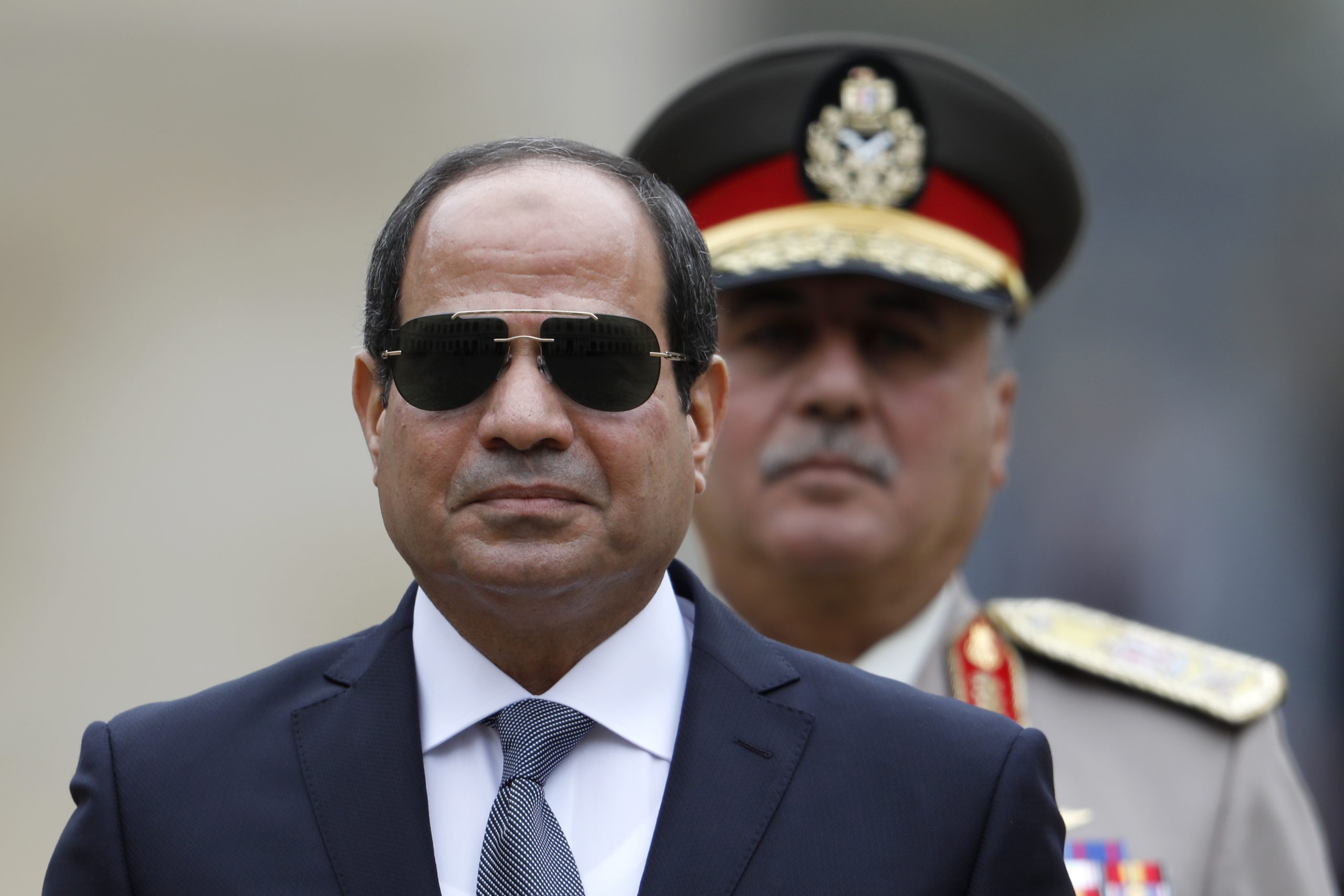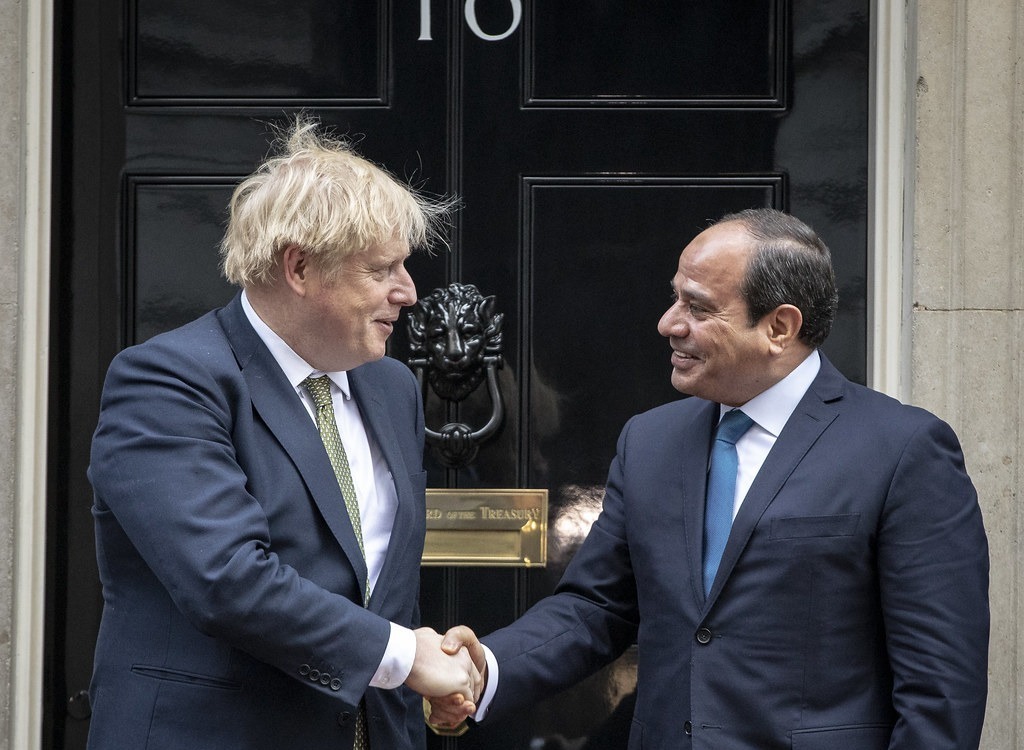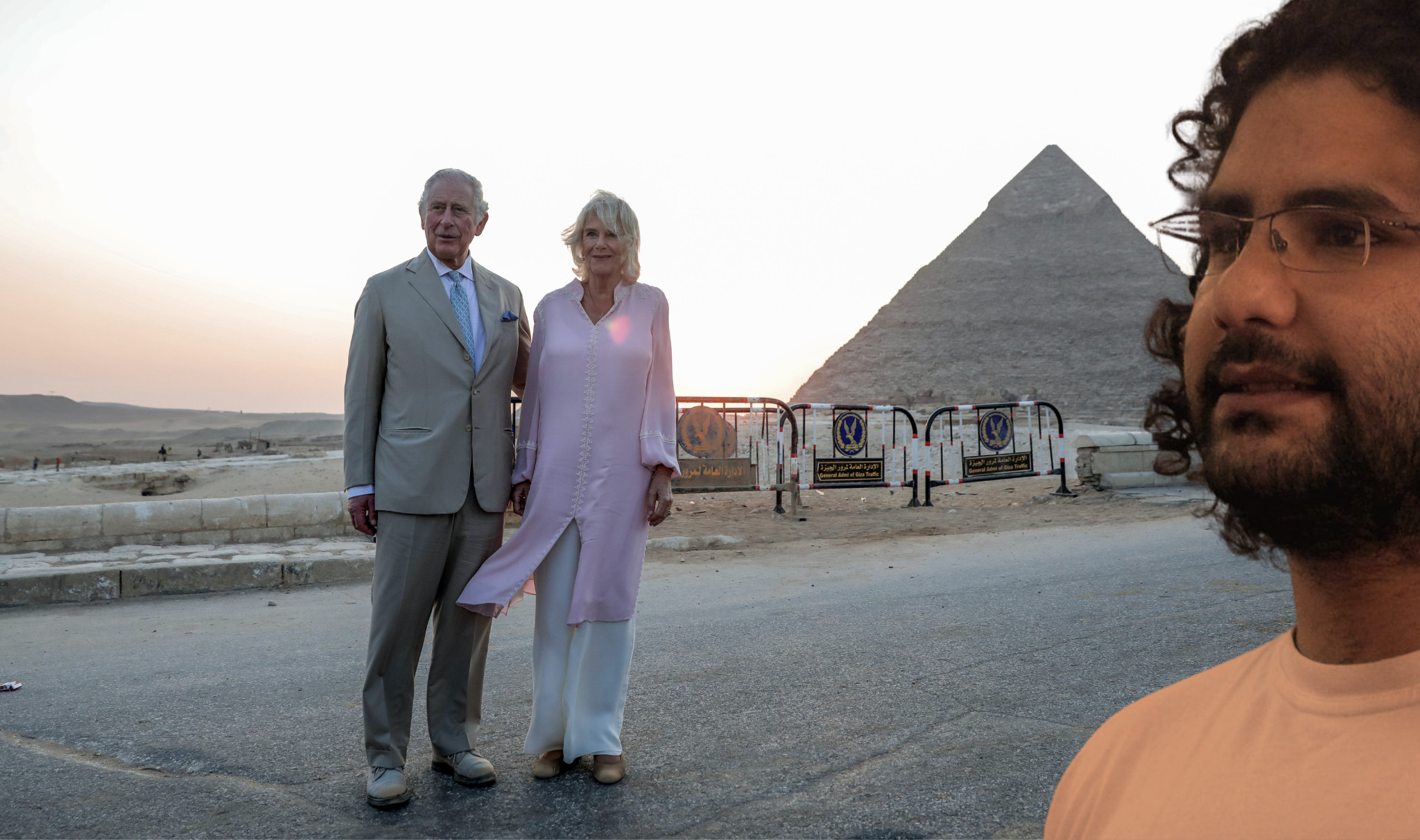Egyptian dictator Abdul Fattah al-Sisi assumed power in 2014 after a military coup had overthrown Egypt’s first democratically-elected leader the previous year.
Since then he has presided over a human rights crackdown in the North African country, locking up thousands of political prisoners. Arbitary arrest and torture are widespread.
Sisi’s Egypt, which is set to host the COP27 climate conference next month, is in the midst of a “human rights crisis”, according to Amnesty.
Among the regime’s detainees is British pro-democracy activist, Alaa Abdel Fattah, who has been on hunger strike since April. His family is worried he could soon die.
Britain has grown increasingly close to Egypt’s regime as repression has increased. The head of MI6, Richard Moore, met with Sisi in Cairo in late 2020 to discuss “intelligence cooperation”.
Senior officials from MI5 and MI6 train Egyptian spies every year at a UK military base just north of London.
But UK aid is another strand of British involvement in the country. The UK aid programme in Egypt lists its top priority as helping “public bodies begin to become independent entities’ and open protected sectors to foreign/private investment”.
It costs around £14 million a year—98% of which comes Britain’s aid budget.
The aim of the economic segment of the aid programme, which costs around £4m a year, is to “implement structural reforms” in Egypt’s economy.
The programme is being planned in close coordination with the Egyptian regime—and is aimed at helping Sisi with his “reform priorities”.
It is run through the Conflict, Security and Stability Fund (CSSF), a cross-government pot of money with the stated aim of preventing “instability and conflicts that threaten UK interests”.
The National Security Council, which is chaired by the prime minister, sets the fund’s strategic direction. But a parliamentary committee found the CSSF was “being used as a ‘slush fund’ for projects” which “do not meet the needs of UK national security.”
Privatisation drive
Egypt has many coveted assets which have long been under the control of the state or the military. But the Sisi regime has been pushing privatisation.
In 2018, as the CSSF aid programme began, Egypt named 23 state companies slated for privatisation. Then in January this year, Egypt’s planning minister said the country aimed to sell stakes in state-owned companies every month.
In May, Egyptian prime minister Mostafa Madbouli announced another string of planned privatisations of state-owned companies. Madbouli laid out plans for 10 state-owned companies and two army-owned companies to be listed on the stock market this year.
The UK aid encouraging privatisation is being channelled through two World Bank projects in Egypt. The most expensive is a “strategic partnership” with the World Bank.
The other funds the International Finance Corporation (IFC), the private-sector lending arm of the bank, which pushes privatisation of public services and subsidises oligarchs around the world.
The World Bank’s country partnership framework, which UK aid is supporting, aims at “improving the business climate for private investments”. It also encourages “investment climate reforms that would boost investor confidence and facilitate greater private sector participation”.
The World Bank, the framework notes, “will seek to encourage…cross-border private investments in energy and water”.
The Egypt programme appears to be another example of how the British aid budget is politicised to pursue state and corporate objectives under the cloak of altruism. It also appears to be an example of what has been dubbed “authoritarian neoliberalism”, the imposition of widespread privatisation by UK-backed dictators.
Britain backs most of the world’s authoritarian regimes, and often uses its diplomatic power and aid budget to push allies to privatise state-owned assets and allow UK business to invest.
UK interests
The UK is one of the largest investors in Egypt, with the total estimated at £50 billion and with 2,000 UK companies operating in the Egyptian market.
The UK government has made a concerted push for companies to engage in Egypt since Sisi took power, establishing a British Investors Forum to encourage investment in 2019.
Repression at the time was picking up. That year, Human Rights Watch noted that Sisi’s “security forces have escalated a campaign of intimidation, violence, and arrests against political opponents, civil society activists, and many others who have simply voiced mild criticism of the government.”
The prize investment for the UK government in Egypt is that of BP, which has operated in the country for almost 60 years. “We have become a major pillar of the country’s energy industry,” the company notes.
Over that time, the British oil giant, which is close to the Foreign Office and MI6, has produced almost 40% of Egypt’s oil. The company currently produces 50% of the country’s gas.
“The prize investment for the UK government in Egypt is that of BP”
The former head of MI6, Sir John Sawers, joined the board of BP in 2015, the year after he left the intelligence agency. He was paid £699,000 by the company over the next four years.
In 2015, the year after Sisi took power, BP announced a new $9bn investment in the West Nile Delta gas development, which includes five gas fields.
The company said its investment was “a vote of confidence in Egypt’s investment climate and economic potential”.
BP currently holds an 83% stake in the development, which accounts for 25% of Egypt’s gas production.
At the time of the investment, Sisi was tightening his grip on power through brutal means. “Egypt’s human rights crisis, the most serious in the country’s modern history, continued unabated throughout 2014,” Human Rights Watch noted.
The Foreign Office told Declassified it regularly raises human rights issues with Egypt, but would not provide an on-the-record comment.




